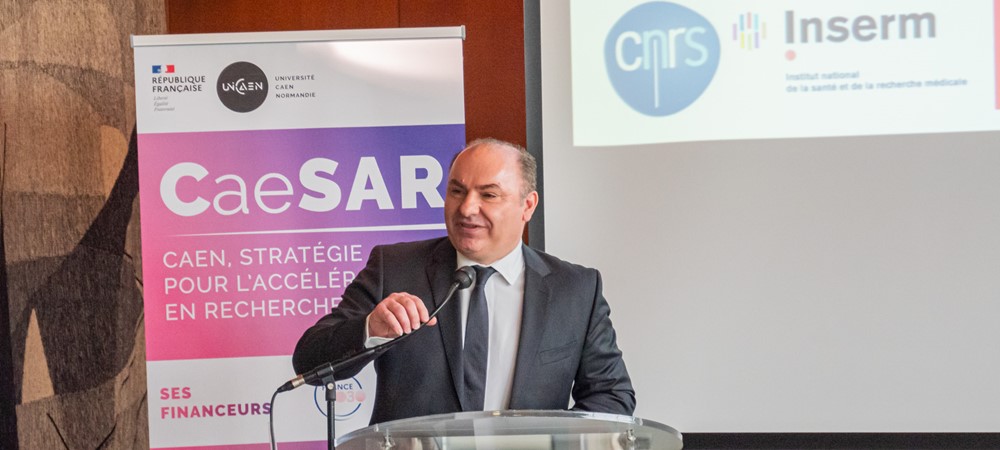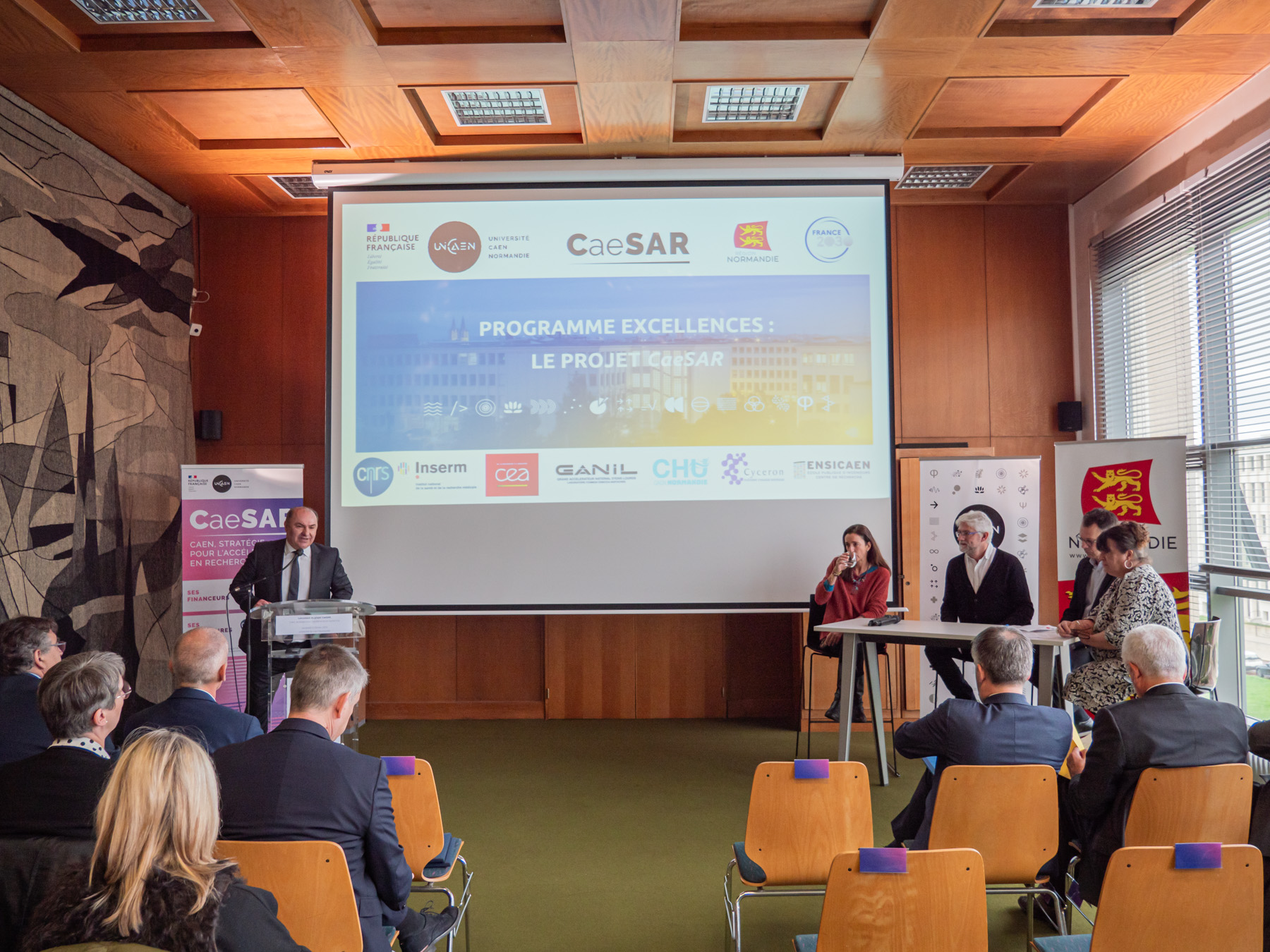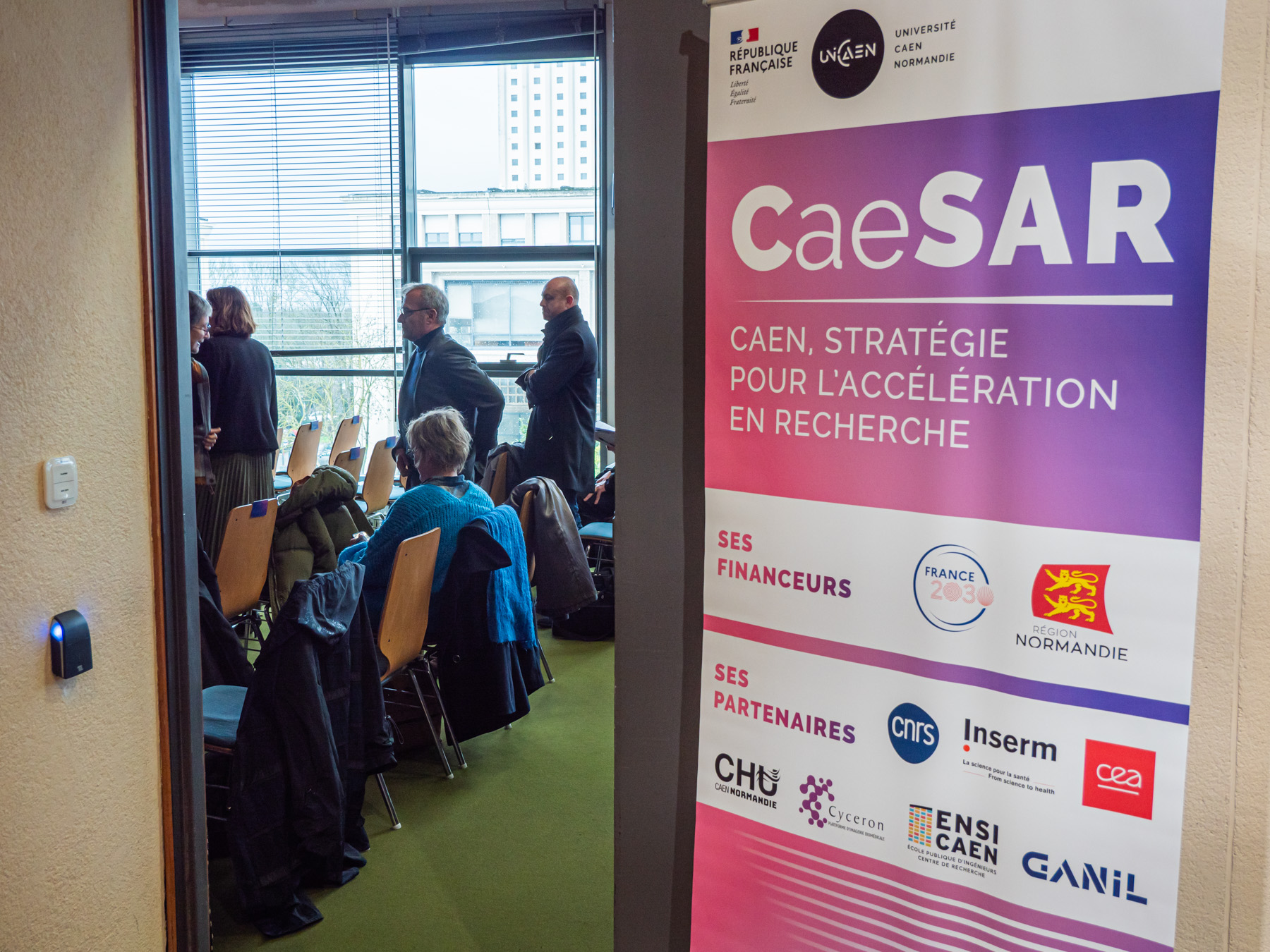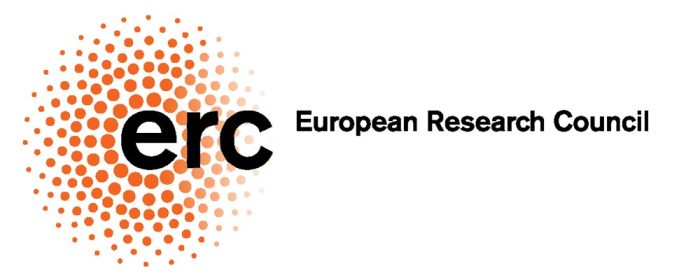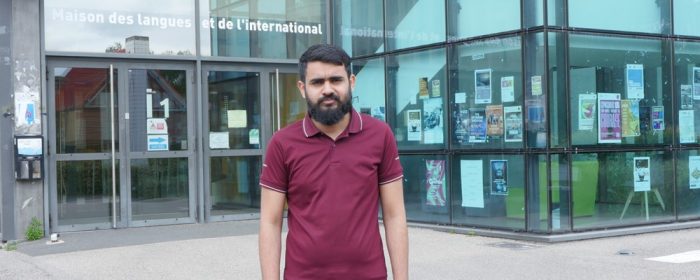On February 23th, 2024, the University of Caen Normandie, alongside its partners on the Caen site (CNRS, Inserm, CEA, Ganil, CHU de Caen Normandie, Cyceron, Ensicaen) and with the support of the Normandy Region, officialy launched the “Caen, Stratégie pour l’accélération en recherche” – CaeSAR (meaning Caen Strategy for Acceleration in Research) project.
Provided with 21.6 million euros, this project allows the University of Caen Normandie to confirm its position as a go-ahead territorial actor with strong national and international ambitions.
Developing scientific areas of excellence with international visibility
The University of Caen Normandie, as a major player in the development and attractiveness of the territory, confirms its national and international influence with CaeSAR, winner of the “Excellence in all its forms” call for projects. The aim of the project, funded in equal parts by France 2030 and the Normandy Region, is to consolidate the scientific potential and raise the profile of the areas of excellence proper to the University of Caen Normandy.
The project will consolidate four strong points that have already been recognized by numerous European and national funding organisations:
- neurosciences, with a specialisation in neurovascular research;
- nuclear energy;
- chemistry and materials – from synthesis to characterisation;
- digital innovation for research in humanities and social sciences
CaeSAR will give the necessary boost to their development, with the ambition of creating three research centers and a platform.
Exploring emerging fields
The CaeSAR project will also focus on differentiating and promising fields that are generating strong regional expectations: memory and peace, biodiversity, climate risks, health innovations, artificial intelligence, equine health, oncology and emerging diseases. With the support of the Normandy Region and alongside the region’s socio-economic players, synergy around these multi-disciplinary themes will be supervised to figure out the major societal challenges as well as the various ecological, digital and societal transitions.
Supporting attractiveness
CaeSAR aims to consolidate conditions conducive to research excellence by creating an environment that welcomes researchers, publishes knowledge and promotes science-society initiatives. This project complements recent successes in the fields of innovation, training and European project engineering. As research and training are intrinsically linked, the CaeSAR project has ambitions at the highest international level, and includes a vast program of graduate schools, summer schools, doctoral and post-doctoral contracts, and backings for European projects – notably the ERC.
« The CaeSAR project marks a major watershed for the University of Caen Normandie. By consolidating our strengths in internationally recognized areas serving the humanities and social sciences, we are affirming our position as a leading research center. This project catalyzes our commitment to scientific excellence and strengthens our role in regional transformation and international competition. With a budget of 21.6 million euros over six years, CaeSAR is an ambitious project supported by the Normandy Region that will make Caen a key player in international research. »
Lamri Adoui, President, University of Caen Normandie
The University of Caen Normandie officially kicked off the CaeSAR project, in the presence of all its partners, Hervé Morin, President of the Normandy Region, and Stéphane Bredin, Prefect of Calvados Department, on Friday February 23, 2024.


